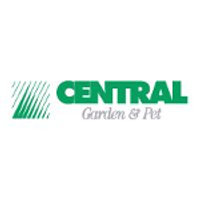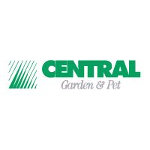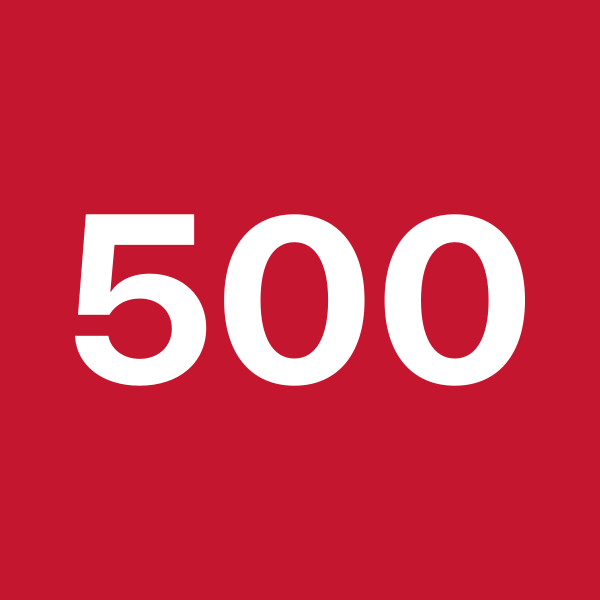
Central Garden & Pet Co
NASDAQ:CENT


| US |

|
Johnson & Johnson
NYSE:JNJ
|
Pharmaceuticals
|
| US |

|
Berkshire Hathaway Inc
NYSE:BRK.A
|
Financial Services
|
| US |

|
Bank of America Corp
NYSE:BAC
|
Banking
|
| US |

|
Mastercard Inc
NYSE:MA
|
Technology
|
| US |

|
UnitedHealth Group Inc
NYSE:UNH
|
Health Care
|
| US |

|
Exxon Mobil Corp
NYSE:XOM
|
Energy
|
| US |

|
Pfizer Inc
NYSE:PFE
|
Pharmaceuticals
|
| US |

|
Palantir Technologies Inc
NYSE:PLTR
|
Technology
|
| US |

|
Nike Inc
NYSE:NKE
|
Textiles, Apparel & Luxury Goods
|
| US |

|
Visa Inc
NYSE:V
|
Technology
|
| CN |

|
Alibaba Group Holding Ltd
NYSE:BABA
|
Retail
|
| US |

|
3M Co
NYSE:MMM
|
Industrial Conglomerates
|
| US |

|
JPMorgan Chase & Co
NYSE:JPM
|
Banking
|
| US |

|
Coca-Cola Co
NYSE:KO
|
Beverages
|
| US |

|
Walmart Inc
NYSE:WMT
|
Retail
|
| US |

|
Verizon Communications Inc
NYSE:VZ
|
Telecommunication
|
Utilize notes to systematically review your investment decisions. By reflecting on past outcomes, you can discern effective strategies and identify those that underperformed. This continuous feedback loop enables you to adapt and refine your approach, optimizing for future success.
Each note serves as a learning point, offering insights into your decision-making processes. Over time, you'll accumulate a personalized database of knowledge, enhancing your ability to make informed decisions quickly and effectively.
With a comprehensive record of your investment history at your fingertips, you can compare current opportunities against past experiences. This not only bolsters your confidence but also ensures that each decision is grounded in a well-documented rationale.
Do you really want to delete this note?
This action cannot be undone.

| 52 Week Range |
32.52
47.33
|
| Price Target |
|
We'll email you a reminder when the closing price reaches USD.
Choose the stock you wish to monitor with a price alert.

|
Johnson & Johnson
NYSE:JNJ
|
US |

|
Berkshire Hathaway Inc
NYSE:BRK.A
|
US |

|
Bank of America Corp
NYSE:BAC
|
US |

|
Mastercard Inc
NYSE:MA
|
US |

|
UnitedHealth Group Inc
NYSE:UNH
|
US |

|
Exxon Mobil Corp
NYSE:XOM
|
US |

|
Pfizer Inc
NYSE:PFE
|
US |

|
Palantir Technologies Inc
NYSE:PLTR
|
US |

|
Nike Inc
NYSE:NKE
|
US |

|
Visa Inc
NYSE:V
|
US |

|
Alibaba Group Holding Ltd
NYSE:BABA
|
CN |

|
3M Co
NYSE:MMM
|
US |

|
JPMorgan Chase & Co
NYSE:JPM
|
US |

|
Coca-Cola Co
NYSE:KO
|
US |

|
Walmart Inc
NYSE:WMT
|
US |

|
Verizon Communications Inc
NYSE:VZ
|
US |
This alert will be permanently deleted.
 Central Garden & Pet Co
Central Garden & Pet Co
Central Garden & Pet Co
Central Garden & Pet Co. has cultivated a noteworthy presence in the market by expertly navigating the confluence of horticulture and pet care. Founded as a modest garden supply distributor, the company has blossomed into a multifaceted enterprise. They cater to the diverse demands of plant enthusiasts and pet owners alike, offering a rich array of products ranging from gardening tools, seeds, and fertilizers to premium pet food and bedding. Central Garden & Pet coalesces its varied product lineup under a portfolio of trusted brands, including Pennington, Amdro, Kaytee, and Nylabone, which resonate with consumers through a focus on quality and innovation. By aligning with trends in organic gardening and the humanization of pets, Central Garden & Pet remains at the forefront of consumer preferences.
At the heart of Central Garden & Pet’s business model lies the synergistic relationship between its garden and pet divisions, which are supplemented by a robust distribution network. The company optimizes its operations by strategically manufacturing certain products, while also partnering with key retailers, including big-box stores, home improvement centers, and independent outlets, to extend its market reach. This dual-channel strategy not only widens consumer access to its offerings but also fortifies its revenue streams. Through continual research and development, Central Garden & Pet sustains its edge in the market, adjusting to the evolving demands of environmentally conscious and tech-savvy customers. In essence, the company thrives by nurturing both nature and companionship, reflecting an astute understanding of its dual-market dynamics.

Central Garden & Pet Co. has cultivated a noteworthy presence in the market by expertly navigating the confluence of horticulture and pet care. Founded as a modest garden supply distributor, the company has blossomed into a multifaceted enterprise. They cater to the diverse demands of plant enthusiasts and pet owners alike, offering a rich array of products ranging from gardening tools, seeds, and fertilizers to premium pet food and bedding. Central Garden & Pet coalesces its varied product lineup under a portfolio of trusted brands, including Pennington, Amdro, Kaytee, and Nylabone, which resonate with consumers through a focus on quality and innovation. By aligning with trends in organic gardening and the humanization of pets, Central Garden & Pet remains at the forefront of consumer preferences.
At the heart of Central Garden & Pet’s business model lies the synergistic relationship between its garden and pet divisions, which are supplemented by a robust distribution network. The company optimizes its operations by strategically manufacturing certain products, while also partnering with key retailers, including big-box stores, home improvement centers, and independent outlets, to extend its market reach. This dual-channel strategy not only widens consumer access to its offerings but also fortifies its revenue streams. Through continual research and development, Central Garden & Pet sustains its edge in the market, adjusting to the evolving demands of environmentally conscious and tech-savvy customers. In essence, the company thrives by nurturing both nature and companionship, reflecting an astute understanding of its dual-market dynamics.































 You don't have any saved screeners yet
You don't have any saved screeners yet
